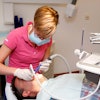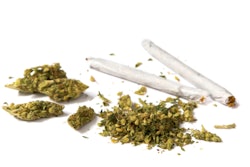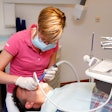Regular recreational cannabis use may be linked to untreated coronal and root surface caries, as well as severe tooth loss, in U.S. adults. This large study was recently published in the Journal of the American Dental Association.
Dental professionals are likely to treat frequent cannabis users, emphasizing the need for training on its oral health effects, the authors wrote.
"Dental care professionals should be aware that frequent recreational cannabis (FRC) use may be associated with caries and tooth loss," wrote the authors, led by Dr. Ellyce Clonan, MPH, of the University at Buffalo School of Dental Medicine (JADA, November 23, 2024).
Collected through the U.S. National Health and Nutrition Examination Survey 2015-2018, the study included 5,656 adults with an average age of 39. FRC use was defined as self-reported use of marijuana or hashish at least once per month over the past year, they wrote.
The study assessed three dental outcomes, including untreated coronal caries defined as the presence of at least one affected tooth, untreated root caries defined as the presence of at least one affected tooth, and severe tooth loss defined as fewer than nine remaining permanent teeth.
Furthermore, log-binomial and logistic regression analyses were performed, both unadjusted and adjusted for sociodemographic and behavioral factors, to evaluate the relationship between FRC use and these dental conditions, they wrote.
FRC users had a 37% higher probability of untreated coronal caries (prevalence ratio, 1.37; 95% confidence interval [CI], 1.19-1.58), nearly double the odds of untreated root surface caries (odds ratio [OR], 1.98; 95% CI, 1.59-2.45), and 57% higher odds of severe tooth loss (OR, 1.57; 95% CI, 1.18-2.09).
These associations remained significant after adjusting for age, sex, race/ethnicity, education, income-to-poverty ratio, nativity, and alcohol use. Adjusted results showed FRC users had a 17% higher probability of untreated coronal caries (95% CI, 1.02-1.35), 55% higher odds of untreated root surface caries (95% CI, 1.21-1.99), and 41% higher odds of severe tooth loss (95% CI, 1.00-1.99), they wrote.
However, the study had limitations. As it was a cross-sectional study, a causal relationship could not be established, the authors added.
As the decriminalization of recreational marijuana becomes the norm in the U.S., clinicians should be prepared to care for these patients.
"Our study highlights a need for additional pre- and postdoctoral training and education on the impact of cannabis use on the oral health of adults of all ages," they wrote.




















